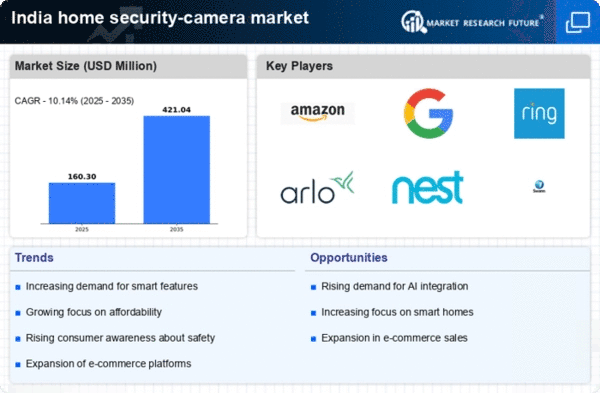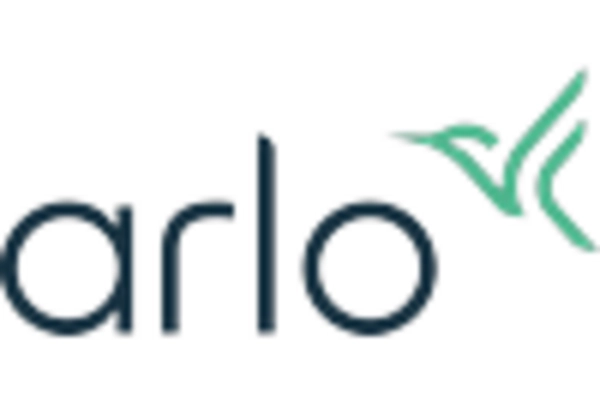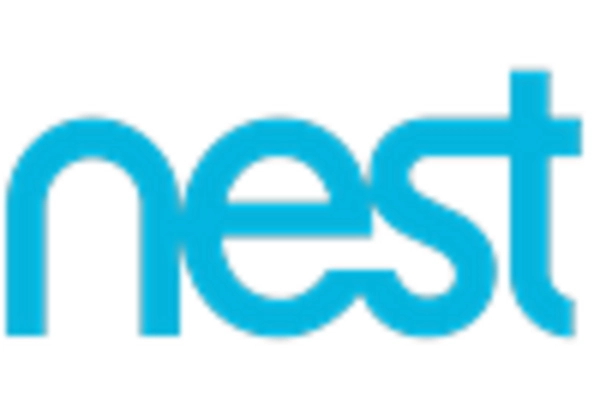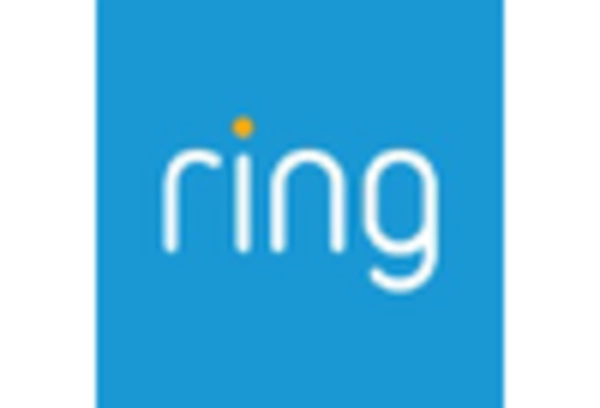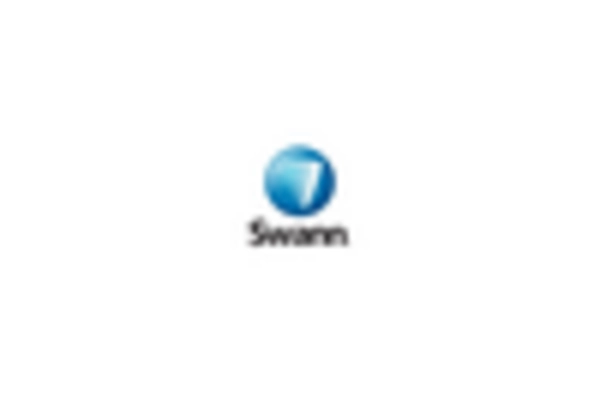Increasing Crime Rates
The rise in crime rates across urban and suburban areas in India appears to be a significant driver for the home security-camera market. As reported by various law enforcement agencies, property crimes have surged by approximately 15% in the last few years. This alarming trend has prompted homeowners to seek enhanced security measures, including the installation of surveillance cameras. the home security-camera market is likely to experience robust growth as consumers prioritize safety.. Furthermore, the increasing awareness of crime prevention strategies has led to a greater acceptance of security technologies. As a result, the demand for advanced home security solutions is expected to escalate, with projections indicating a potential market growth of 20% annually in the coming years.
Rising Disposable Incomes
The increase in disposable incomes among the Indian middle class is contributing to the expansion of the home security-camera market. As more households experience financial growth, there is a corresponding rise in consumer spending on home improvement and security solutions. Market data suggests that approximately 30% of Indian households are now willing to invest in advanced security systems, including surveillance cameras. This trend is particularly evident in urban areas, where the demand for home security solutions is surging. The home security-camera market is projected to grow by 22%. More consumers are prioritizing safety and investing in technologies that provide peace of mind.. This shift in consumer behavior indicates a growing recognition of the importance of home security in enhancing overall quality of life.
Technological Advancements
Technological innovations in the home security-camera market are driving consumer interest and adoption. The introduction of high-definition cameras, night vision capabilities, and motion detection features has transformed the landscape of home security. In India, the market is witnessing a shift towards smart cameras that can be integrated with mobile applications, allowing users to monitor their homes remotely. This trend is supported by the increasing penetration of smartphones and the internet, which has made advanced security solutions more accessible. The home security-camera market is projected to grow by 25% over the next five years. Consumers are increasingly seeking out cutting-edge technology to enhance their home security systems.. The integration of artificial intelligence and machine learning in security cameras further enhances their functionality, making them more appealing to tech-savvy consumers.
Growing Awareness of Home Security
There is a notable increase in awareness regarding home security among Indian consumers, which is significantly impacting the home security-camera market. Educational campaigns and media coverage about the importance of home safety have led to a shift in consumer behavior. Homeowners are now more inclined to invest in security solutions, recognizing the value of surveillance systems in deterring crime. This heightened awareness is reflected in Market Research Future, indicating that approximately 60% of homeowners consider security cameras a necessary investment. As a result, the home security-camera market is projected to expand, with a projected growth rate of 18% over the next few years.. This trend suggests that as consumers become more informed about security options, the demand for reliable and effective home security solutions will continue to rise.
Government Initiatives and Regulations
Government initiatives aimed at enhancing public safety are playing a crucial role in the growth of the home security-camera market. Various state governments in India have introduced policies that encourage the installation of surveillance systems in residential areas. These initiatives often include financial incentives or subsidies for homeowners who invest in security technologies. Additionally, regulations mandating the use of security cameras in certain public spaces have raised awareness about their importance in crime prevention. As a result, the home security-camera market is projected to benefit from these supportive measures, with an anticipated growth rate of 15% in the coming years.. The collaboration between government bodies and private security firms further emphasizes the commitment to improving safety standards across the nation.


